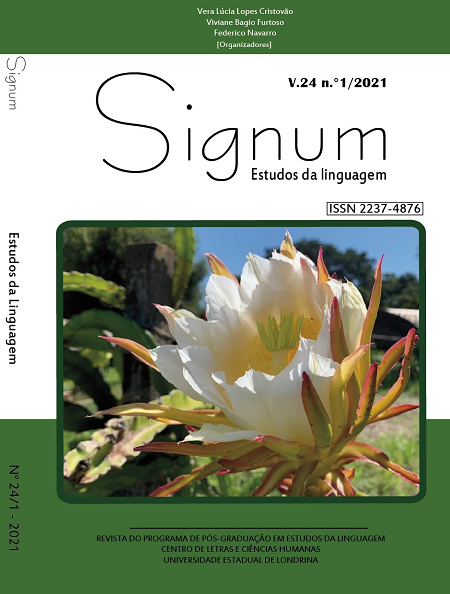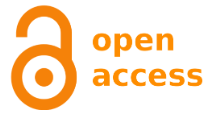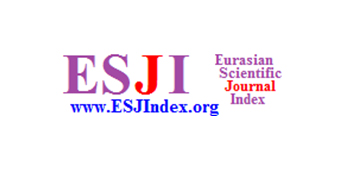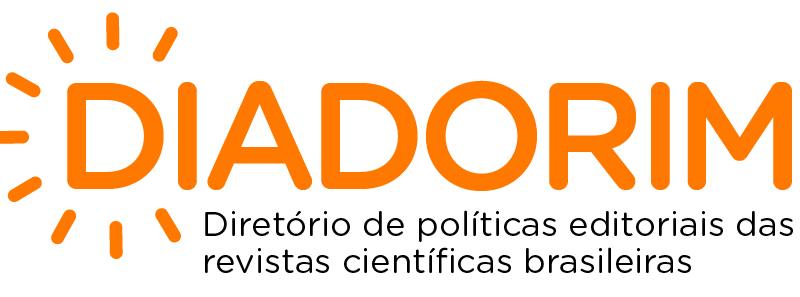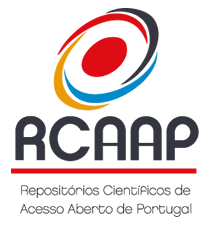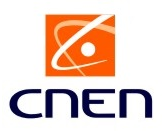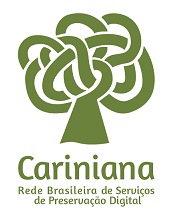Addressing Power Imbalance in Telecollaboration to Promote Attitudes of Intercultural Competence
DOI:
https://doi.org/10.5433/2237-4876.2021v24n1p97Resumo
Internationalization-at-home (IaH) can benefit all types of students, and its value has become more evident in the long aftermath of the Covid-19 pandemic. This paper reports on a virtual exchange project: Students of English as a foreign language in Brazil and English composition in the US engaged in an international telecollaboration project in which both groups took on the role of authors and reviewers. Research on telecollaboration is rapidly growing to help instructors understand how to help students develop intercultural competence and an ability to collaborate with people from different backgrounds. To determine whether the participating students achieved these learning goals, we asked them to complete a questionnaire at the end of the project. Results show that the telecollaboration stimulated students' interest in other cultures, a crucial first step towards the acquisition of intercultural competence. The students collaborated effectively because the two groups trusted each other's linguistic competence. Telecollaboration proved to be one of the most pedagogically sound initiatives within the sphere of IaH. More instructors should prepare students to communicate and collaborate effectively in cross-cultural teams through this type of experiential learning.Downloads
Referências
ALMEYDA et al. Understanding Internationalization at Home: Perspectives from the global North and South. European Educational Research Journal, vol. 18, n. 2, p. 200-217, 2018.
ALTBACH, P. G.; KNIGHT, J. The internationalization of higher education: Motivations and realities. Journal of Studies in International Education, vol. 11, n. 3-4, p. 290-305, 2007.
ARNO, E.; AUTHOR 1, M.; MAYLATH, B. Engineers taking a stance on technical communication: Peer review of oral presentations via the Trans-Atlantic & Pacific Project. IEEE Transactions of Technical Communication, forthcoming, 2020.
BEELEN, J.; JONES, E. Redefining internationalization at home. In: CURAJ, A.; MATEI, L.; PRICOPIE, R.; SALMI, J.; SCOTT, P. (Org.), The European higher education area: Between critical reflections and future policies. Dordrecht: Springer, 2015. p. 67-80.
BELÉN DÍEZ-BEDMAR, M.; PÉREZ-PAREDES, P. The types and effects of peer native speakers' feedback on CMC. Language Learning & Technology, v. 16, n. 1, p. 62-90, 2012.
BELZ, J. A. Linguistic perspectives on the development of intercultural competence in telecollaboration. Language Learning & Technology, v.7, n. 2, p. 68-99, 2003.
BOWER, J.; KAWAGUCHI, S. Negotiation of meaning and corrective feedback in Japanese/English eTandem. Language Learning & Technology, v. 15, n. 1, p. 41-71, 2011.
CANAGARAJAH, A. S. Lingua Franca English, multilingual communities, and language acquisition. Modern Language Journal, v. 91, p. 923-939, 2007.
COGO, A. Accommodating difference in ELF conversations: A study of pragmatic strategies. In: Mauranen, A.; Ranta, E. (Org.), English as a lingua franca: Studies and findings. Newcastle, UK: Cambridge Scholars, 2009. p. 254-270.
COGO, A.; DEWEY, M. Efficiency in ELF communication: From pragmatic motives to lexico-grammatical innovation. In: MAURANEN, A.; METSÄ-KETELÄ, M. (Org.), English as a lingua franca: Special issue of the Nordic Journal of English Studies, v. 5, n. 2, p.59-93, 2006.
COGO, A. & HOUSE, J. In: JENKINS, J.; BAKER, W.; DEWEY, M. (Org.), The Routledge handbook of English as a lingua franca. New York, NY: Routledge, 2018. p. 210-223.
COOK, V. J. Going beyond the native speaker in language teaching. TESOL Quarterly, v. 33, n. 2, p. 185-209, 1999.
CROWTHER, P.; JORIS, M.; OTTEN, M.; NILSSON, B.; TEEKENS, H.; WÄCHTER, B. Internationalization at home: A position paper. Amsterdam: EAIE, 2001.
DE HEI, M.; TABACARU, C.; SJOER, E.; RIPPE, R.; WALENKAMP, J. Developing intercultural competence through collaborative learning in international higher education. Journal of Studies in International Education, v. 24, n. 2, p. 190-211, 2020.
DE WIT, H.; HUNTER, F.; HOWARD, L., & EGRON-POLAK, E. Internationalisation of higher education. Brussels: European Parliament. 2015.
DE WIT, H.; HUNTER, F. Trends, issues and challenges in the internationalisation of higher education. In: MCGRATH, S.; GU, Q. (Org.), Routledge handbook of international education and development. Abingdon: Routledge, 2015. p. 340-358.
DEARDROFF, D. K. Identification and assessment of intercultural competence as a student outcome of internationalization. Journal of Studies in Intercultural Education, v. 10, n. 3, p. 241-266, 2006.
DEARDROFF, D. K. (Org.). The SAGE handbook of intercultural competence. Thousand Oaks, CA: Sage, 2009.
DEY, I. Qualitative data analysis. London: Routledge, 1993.
DOOLEY, M. Telecollaborative language learning. Bern: Peter Lang, 2008.
GLASER, B.; STRAUSS, A. The discovery of Grounded Theory. Chicago: Aldine, 1967.
GODWIN-JONES, R. Telecollaboration as an approach to developing intercultural communication competence. Language Learning & Technology. vol. 3, n. 3, p. 8-28, 2019.
GUIMARÃES, F. F.; MENDES, A. R. M.; RODRIGUES, L. M.; DOS SANTOS PAIVA, R. S.; FINARDI, K. R. Internationalization at Home, COIL and Intercomprehension. SFU Educational Review, v. 12, n. 3, p. 90-109, 2019.
GUTH, S.; HELM, F. Introduction. In: GUTH, S. F. HELM, S. (Org.), Telecollaboration 2.0: Language, literacy and intercultural learning in the 21st century Bern: Peter Lang, 2010. p. 69-106.
HELM, F. A dialogic model for telecollaboration. Bellaterra Journal of Teaching & Learning Language & Literature, v. 6, n. 2, p. 28-48, 2013.
HOLLIDAY, A. Small cultures. Applied Linguistics, v. 20, p. 237-264, 1999.
HOLLIDAY, A. Native-speakerism. English Language Teaching Journal, v. 60, n. 4, p. 385-387, 2006.
HOUSE, J. The pragmatics of English as a lingua franca. In: TROSBORG, A. (Org.) Handbook of Pragmatics, v. 7, p. 363-387, 2010.
HUDZIK, J. Comprehensive internationalization: From concept to action. Washington, DC: NAFSA, 2011.
HUDZIK, J. K. Comprehensive internationalization: Institutional pathways to success. New York: Routledge, 2015.
HYETT, N.; LEE, K. M.; KNEVEL, R.; FORTUNE, T.; YAU, M. K.; BORKOVIC, S. Trialing virtual intercultural learning with Australian and Hong Kong allied health students to improve cultural competency. Journal of Studies in International Education, v. 23, n. 3, p. 389-406, 2018.
INSTITUTE OF INTERNATIONAL EDUCATION. Open Doors 2017: Executive summary. Retrieved from https://www.iie.org/Why-IIE/Announcements/2017-11-13-Open-Doors-2017-Executive-Summary 2017.
JARVENPAA, S. L.; LEIDNER, D. E. Communication and trust in global virtual teams. Organization Science, v. 10, p. 791-815, 1999.
JENKINS, J. Current perspectives on teaching World Englishes and English as a lingua franca. TESOL Quarterly, v. 40, p. 157-181, 2006.
JOHNSON, J. L.; CULLEN, J. B. Trust in cross-cultural relationships. In: Cannon, M. J.; Newman, K. L. (Org.) The Blackwell handbook of cross-cultural management. Malden, MA: Blackwell Publishing, 2002.
KAUR, J. Pre-empting problems of understanding in English as a lingua franca. In: MAURANEN, A.; RANTA, E. (Org.) English as a Lingua Franca: Studies and findings, Newcastle upon Tyne: Cambridge Scholars Publishing, 2009. p. 107-125.
KNIGHT, J. Updating the definition of internationalization. International Higher Education, v. 33, n. 2-3, 2003.
KNIGHT, J. Concepts, rationales, and interpretive frameworks in the internationalization of higher education. In: DEARDORFF, D. K.; DE WIT, H.; HEYL, J. D., ADAMS, T. The SAGE handbook of international education. Thousand Oaks: Sage, 2012. p. 27-42.
LEASK, B. Using formal and informal curricula to improve interactions between home and international students. Journal of Studies in International Education, v. 13, n. 2, p. 205-221, 2009.
LEASK, B. Internationalizing the curriculum. London: Routledge, 2015.
MAURANEN, A. Hybrid voices: English as the lingua franca of academics. In: FLØTTUM, K.; DAHL, T.; KINN, T. (Org.) Language and discipline: Perspectives on academic discourse. Newcastle upon Tyne: Cambridge Scholars Publishing, 2007. p. 233-259.
MAURANEN, A. Exploring ELF. Cambridge: Cambridge University Press, 2012.
MAYLATH, B.; VANDEPITTE, S.; MOUSTEN, B. Growing grassroots partnerships: Trans-Atlantic collaboration between American instructors and students of technical writing and European instructors and students of translation. In: STARKE-MEYERRING, D.; WILSON, M. (Org.), Designing globally networked learning environments: Visionary partnerships, policies, and pedagogies. Rotterdam, Netherlands: Sense, 2008. p. 52-66.
MERRIAM, S. B. Case study research in education: A qualitative approach. San Francisco: Jossey Bass, 1988.
MEIERKORD, C. Lingua franca communication: Past and present. International Journal of the Sociology of Language, v. 177, n. 1, p. 9-30, 2006.
MOUSTEN, B.; VANDEPITTE, S.; ARNÓ, E.; MAYLATH, B. Multilingual writing and pedagogical cooperation in virtual learning environments. Hershey, PA: IGI Global, 2018.
MOUSTEN, B.; MAYLATH, B.; VANDEPITTE, S.; HUMBLEY, J. Learning localization through trans-Atlantic collaboration: Bridging the gap between professions. IEEE-Transactions on Professional Communication, v. 53, p. 401-411, 2010.
O'DOWD, R. From Telecollaboration to virtual exchange: state-of-the-art and the role of UNIcollaboration in moving forward. Journal of Virtual Exchange, v. 1, p. 1-23, 2018.
PITZL, M-L. Non-understanding in English as a lingua franca: Examples from a business context. Vienna English Working Papers, v. 14, n. 2, p. 50-71, 2005.
PROCTOR, D.; RUMBLEY, L. E. (Org.). The future agenda for internationalization in higher education: Next generation insights into research, policy, and practice. New York: Routledge, 2018.
RAMPTON, M. B. H. Displacing the "native speaker": Expertise, affiliation and inheritance. ELT Journal. v. 44, p. 338-343, 1990.
RUBIN, J. The collaborative online international learning network. In: O'Dowd, R.; Lewis, T. (Eds), Online intercultural exchange: policy, pedagogy, practice. Routledge, 2016. p. 263-272.
RUMBLEY, L. E.; ALTBACH, P.G.; REISBERG, L. Internationalization within the Higher Education context. In: DEARDORFF, D. K.; DE WIT, H.; HEYL, J. D.; ADAMS, T. The Sage handbook of international education. Thousand Oaks: Sage, 2012. p. 3-26.
SALOMÃO, A. C. B. Telecolaboração: algumas experiências no ensino e aprendizagem de línguas e na formação de professores. In: LUCAS, P. O; RODRIGUES, R. F. L. Temas e Rumos nas Pesquisas em Linguística (Aplicada): questões empíricas, éticas e práticas. Pontes, 2017. p. 37-60.
SCHULTHEIS MOORE, A.; SIMON, S. Globally networked teaching in the humanities. New York: Routledge, 2015.
SEIDLHOFER, B. Closing a conceptual gap: The case for a description of English as a lingua franca. International Journal of Applied Linguistics, v. 11, n. 2, p. 133-158, 2001.
SEIDLHOFER, B. Habeas corpus and divide et impera: 'Global English' and applied linguistics. In: SPELMAN MILLER, K.; THOMPSON, P. (Org.) Unity and diversity in language use. London: Continuum, 2002. p. 198-217.
SEIDLHOFER, B. Research perspectives on teaching English as a lingua franca. Annual Review of Applied Linguistics, v. 24, p. 209-239, 2004.
SEIDLHOFER, B. Accommodation and the idiom principle in English as a Lingua Franca.
Intercultural Pragmatics, v. 6, n. 2, p. 195-215, 2009.
SORIA, K. M.; TROISI, J. Internationalization at home alternatives to study abroad: Implications for students' development of global, international, and intercultural competencies. Journal of Studies in International Education, v. 18, n. 3, p. 261-280, 2014.
STAKE, R. Case study methods in educational research. Washington, D.C.: American Educational Research Association. 1980.
STAKE, R. Case study methods in educational research: Seeking sweet water. In: JAEGER, R.M. (Ed.), Complementary methods for research in education (pp. 253-278). Washington, D.C.: American Educational Research Association, 1988.
STIER, J. Internationalisation, intercultural communication and intercultural competence. Journal of Intercultural Communication, v.11, n. 1, p.1-12, 2006
TARAS, V., BRYLA, P., CAPRAR, D. V., ORDENANA, X., ROTTIG, D., BODE, A., HUANG, V. Z. A global classroom? Evaluating the effectiveness of global virtual collaboration as a teaching tool in management education. Academy of Management Learning and Education, v. 12, n. 3, p. 414-435, 2013.
TRAIN, R. A critical look at technologies and ideologies in internet-mediated intercultural foreign language education. In: BELZ, J. A.; THORNE, S. L. (Org.), Internet-mediated intercultural foreign language education. Boston: Thomson Heinle, 2006. p. 247-284.
AUTHOR 1. An ethical rationale for the teaching of English as a Lingua Franca in professional and technical communication courses. Connexions: International Professional Communication Journal, v. 5, n. 1, p. 1-29, 2017.
AUTHOR 1 Hospitable Writing: Accommodating emergent users of English by means of intralingual translation. Linguistics and Education, v. 56, p. 1-12, 2020.
WARE, P.; O'DOWD, R. Peer feedback on language form in telecollaboration. Language Learning & Technology, v. 12, n. 1, p. 43-63, 2008.
YIN, R.K. Case study research: Design and methods. Beverly Hills: Sage, 1984.
ZAKARIA, N.; AMELINCKZ, A.; WILEMON, D. Working together apart? Building a knowledge sharing culture for global virtual teams. Creativity and Innovation Management, v. 13, p. 15-29, 2004.
Downloads
Publicado
Como Citar
Edição
Seção
Licença
Copyright (c) 2021 Signum: Estudos da Linguagem

Este trabalho está licenciado sob uma licença Creative Commons Attribution-NonCommercial-NoDerivatives 4.0 International License.
Signum: Estudos da linguagem, publica seus artigos licenciados sob a Licença Atribuição-NãoComercial-CompartilhaIgual 4.0 Internacional. Esta licença permite que terceiros façam download e compartilhem os trabalhos em qualquer meio ou formato, desde que atribuam o devido crédito de autoria, mas sem que possam alterá-los de nenhuma forma ou utilizá-los para fins comerciais. Se você remixar, transformar ou desenvolver o material, não poderá distribuir o material modificado.
